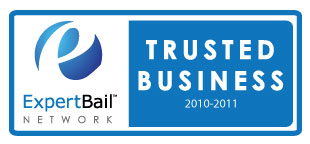If you’ve paid attention to the headlines in the past week, you probably know that a federal judge has revoked Paul Manafort’s bail.
When a judge revokes bail in the federal court system, the defendants do not pass go, they do not collect $200, and in most cases, they’re taken into custody by the US Marshal’s Service before they have a chance to walk out of the courtroom.
If you’re wondering why this is so significant, or how federal bail bonds is different from bail bonds for state cases, you’ve come to the right place.
Manafort’s $10 million-dollar mistake
The biggest difference between the federal and state bail bonds, is while state bail guarantees the defendant will go to court, federal bail bonds not only guarantee court appearance, they guarantee all terms and conditions of the defendant’s release.
In Manafort’s case, the court agreed to allow him to be “released” to home detention (with the stipulation he’d need to wear an ankle monitor) after he posted a $10 million bail package. In this particular instance, the “package” involved putting up property (valued in excess of $10 million) with the court.
As part of his release, the court indicated he’d need to abide by a laundry list of terms and conditions, including:
- Agreeing to home confinement
- Agreeing to refrain from illegal drug use
- Agreeing to not commit any additional crimes
The language in the document goes onto say, that the bond may be forfeited if Manafort did not comply with the agreement. Should that happen, the court could immediately order the amount of the bond surrendered to the United States, including the security of the bond, if Manafort failed to comply.
Ultimately, since Manafort’s bail was revoked because he’s facing additional charges, the court could move to seize the property he put up to guarantee the bond.
Know what you’re being asked to sign
If you have a friend or family member that is facing federal charges and you’ve been asked to cosign for their bail bonds, you should have a full understanding of what you’re getting yourself into before you sign on the dotted line.
In the federal system, judges have several options when it comes to releasing a defendant on bail bonds. They can opt for a personal surety bond, which will require the court examine the assets of the cosigner to make sure they can cover the cost of a potential forfeiture.
The court could also ask for a cash bond, where the full amount of the defendant’s bail is put up with the court in the form of a cashier’s check. In some cases, the judge will allow for a property bond (as was the case with Paul Manafort), and in some instances, a judge will allow for a corporate surety bond (which is essentially a fancy term for federal bail bonds) to be posted.
Regardless as to the type of bond the court wants, the cosigner will be guaranteeing both the defendant’s court appearances and that they’ll abide by all the terms and conditions of release.
If you don’t have full certainty that the defendant will abide by the conditions that have bee set forth by the court, you may want to think twice about signing your name to the bond packet.







